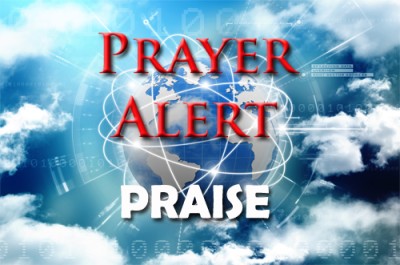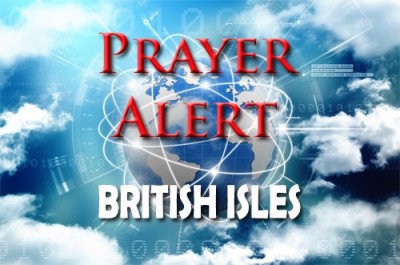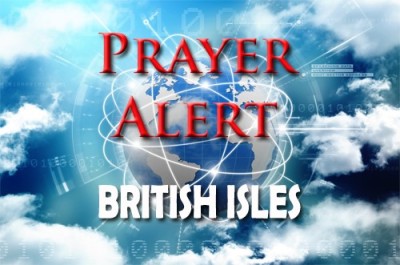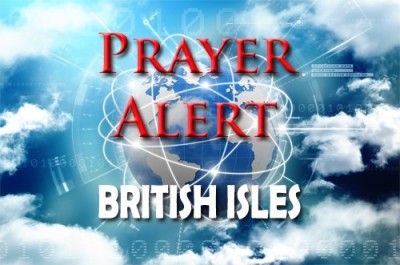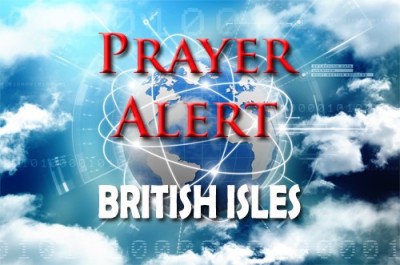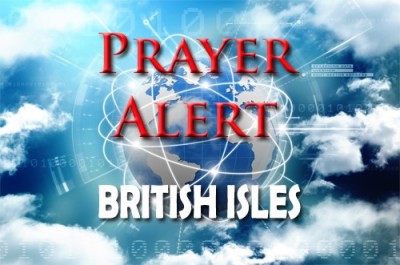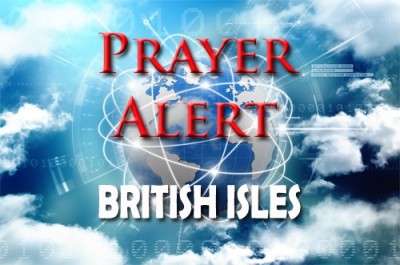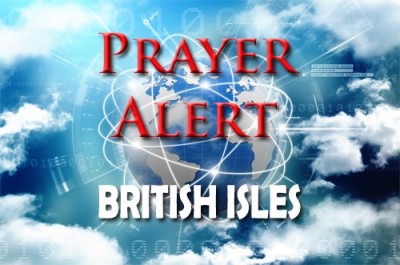Reaching a million in a young continent
28 Oct 2021Over 60% of Africa’s population is under the age of 25; over half of them are under 16. Christ for all Nations (CfaN) is committed to reaching the children and youth of Africa. In the last few decades, CfaN has built a very strong follow-up system with local churches. During the last 18 months their Bootcamp and CfaN team members have conducted an astonishing number of children’s campaigns. They have now produced a special booklet just for children, with the same powerful Gospel message in language that they can understand, read and reread, building the same first steps in faith that adults do. The What’s Next? booklet is already in English, Xhosa, Zulu, Congolese French, German, Afrikaans, Haitian Creole and Kirundi. CFaN is moving as fast as possible to translate it into the local language in each place where there will be an evangelistic campaign in 2022. They plan to reach a million children.
UK boat detained by France in fishing rights row
28 Oct 2021A British trawler was seized by France and another fined, in fishing rights arguments. The French checks on UK trawlers overnight are not part of the range of retaliatory actions announced in the post-Brexit row. But there is no doubt it is a message of what is to come. From 2 November British and Channel Islands fishing boats will not be allowed to offload fish at French ports. There will be intensified controls at Calais and other entry points for UK trade by ferry and tunnel. The French authorities will conduct a ‘grève de zèle’ (punctiliously looking for violations) on fish and other imports which will create long tail-backs to remind British subjects of the costs of go-it-alone. The UK government said the threat of sanctions was ‘not what we would expect from a close ally and partner’. The boat owner said his fishing activity for scallops was ‘entirely legal’.
Northern Ireland hostage over 'fish wars'
28 Oct 2021France is threatening to block any UK-EU deal over the Northern Ireland Protocol unless the row over post-Brexit fishing licences is resolved in Paris’s favour. With presidential elections next year, he cannot afford to sell out his fishermen, as many hail from a stronghold of his rival Marine Le Pen. Macron has trodden this path before. In 2019, he blocked extending Brexit negotiations, risking a no deal to Theresa May’s withdrawal agreement. In 2020 he threatened to veto any Brexit trade deal that did not satisfy French fishermen, ratcheting up pressure on London. Judging by the negative reactions of the British fishing industry to the trade deal, the tactic worked. Now he is threatening extremely delicate negotiations over the NI Protocol. There is a greater risk now of the UK triggering Article 16 of the protocol than any time before. France also threatened to block the UK from joining the EU’s research programme. See
COP26: road closures, strikes, activists, Covid
28 Oct 2021The COP26 climate conference (31 October - 12 November) is expected to draw 25,000 delegates plus 100,000 protesters to Glasgow. Major road closures will last until 15 November, causing disruption. The biggest disturbance will be on 6 November - the Global Day For Climate Justice. A breakdown in union talks means workers will strike from 1-12 November. Pray for pedestrians, cyclists, drivers, and passengers to have composure and patience as they face difficulties when commuting to work. Also 1,500 refuse collection and cleansing staff are striking over a pay dispute. Concerns are also raised regarding COP26’s impact on Covid cases. Many of those attending will not be fully vaccinated, and the magnitude of the event will cause increased cases in an already fragile situation. It could trigger the need for further pandemic restrictions.
Budget taxation and spending
28 Oct 2021The chancellor pledged increasing public spending amid higher than expected economic growth. Whitehall departments will receive a rise of £150bn over the course of this parliament, the largest increase this century. There is extra money for schools, tax cuts for businesses and a cut in air duties for internal flights. A changed alcohol duty will see cheaper sparkling wine and draught beer, and the planned fuel duty rise is cancelled. Amid huge concern over the £20 cut to Universal Credit, changes will be made to let working claimants keep more of their benefits. There is new money for the NHS, a rise in the National Living Wage, and public sector pay rises. The Institute for Fiscal Studies said inflation and higher taxes on incomes would negate small wage increases for middle earners. Low-income households will see the cost of living increase faster than benefit payments. The chancellor acknowledged in his budget that families are under strain: see
Day of Prayer for the Media - 31 October
28 Oct 2021Christians in Media is a UK community supporting, encouraging and inspiring Christians working in, and with, media: producers, journalists, photographers, editors, content creators, social media managers, press officers, war correspondents. Through local meet-ups and a flourishing online network, they help, encourage and inspire each other to be disciples whilst meeting the demands of the industry. Their vision is to see Christians in the industry flourish and become key influencers, to see churches engaging positively with the media, and to see the life-affirming Gospel message of faith, hope and love increasingly reflected in the UK media. 31st October is a day of prayer for Christians in the media; a call to churches to set aside time in their meetings to pray for local, regional, national and social media. To inspire this time of prayer, Christians in Media have produced a new short video that can be used as an introduction to prayer. See
Covid: worrying statistics
28 Oct 2021An estimated one in 60 people in the UK had coronavirus in the week ending 16 October. That figure is one in 45 for Wales, one in 55 for England, one in 90 in Scotland, and one in 130 in NI. Scientists advising the government said they should prepare to trigger stricter Plan B measures now, amid rising cases. The percentage of adults who say they always or often maintain social distancing fell to 39% in mid-October. Although most adults agree measures such as social distancing and mask-wearing to slow the spread of Covid are important, fewer people are still doing it and more than half of working adults are now travelling to work. Young people see the ‘hands, face, space’ measures and social distancing as less important than older age groups do. Men are less likely than women to view them as important or very important.
Schools anti-vax protests
28 Oct 2021There have been anti-Covid vaccine protests outside 420 schools up and down the UK. The Association of School and College Leaders said it is not a fringe concern even though most protests stem from just two groups on the messaging app Telegram. One organiser has allegedly visited every secondary school in Hartlepool, and another group is coordinating multiple daily school visits from Kent to Cheshire. Protesters left Gateshead students distressed after showing them pictures of what appeared to be dead children. They target teachers with sham legal documents, and hand children leaflets with QR codes leading to extremist and conspiracy content. Some protesters think it is wrong to vaccinate children, or say the whole pandemic is a hoax. Sir Keir Starmer said it was sickening that protesters were spreading ‘dangerous misinformation’ to children, and wants exclusion zones set up around school gates.
